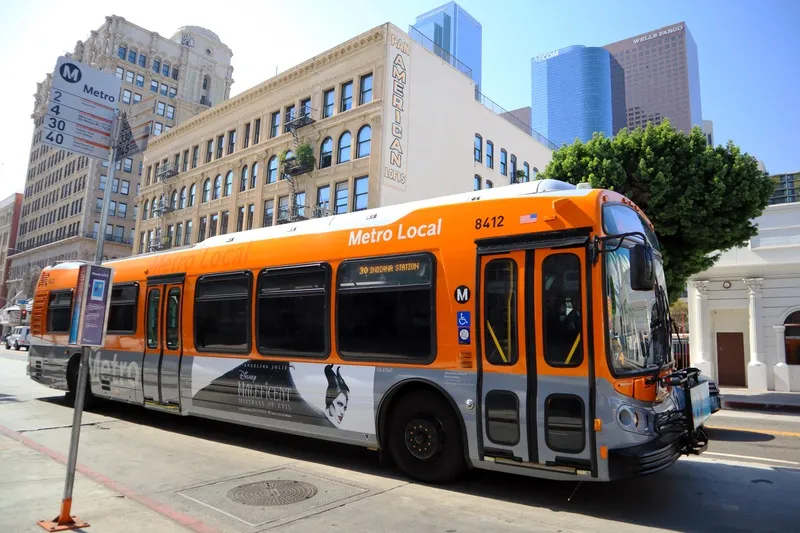
Thousands of people in Los Angeles County could pay nothing for riding on public transit in future.
A public consultation on whether travel on buses and trains should be free has just ended.
LA Metro, which oversees transportation for 9.6 million people – nearly one-third of California’s population – thinks it could increase transit ridership, reduce road congestion and improve air quality.
Metro CEO Phil Washington said: “LA Metro has a moral obligation to pursue a fareless system and help our region recover from both a once-in-a-lifetime pandemic and the devastating effects of the lack of affordability in the region.”
Median household income of Metro riders is relatively low: $17,975 for bus riders and $27,723 for those who travel by rail, according to a Metro customer survey.
Figures from LA County Department of Public Health shows that the Covid-19 mortality rate for “has been significantly higher for Blacks and Latinos and those who are impoverished”.
Metro has operating costs of $1.9 billion.
In the 2019 financial year, which ended before the pandemic, the agency collected $250-$300 million in fares versus - a ratio of fares to costs of around 13%.
“That percentage has been in decline for the past 20 years and is expected to decline further as operating costs rise,” Metro points out.
It insists there are no plans to raise or add to sales taxes to fund the move; instead, Metro says it is going to look at paying for fareless transit via state or federal grants, advertising, sponsorship and “other sources”.
A taskforce will deliver the Fareless System Initiative (FSI) plan to the Metro board of directors by the end of the year.
Washington suggests that fareless transit should be considered “no different than other public programmes funded by the public purse such as firefighting, policing and other public infrastructure that serves as a public right and common good”.










